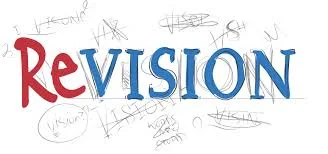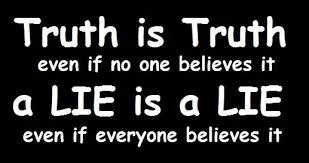What does a good report sound like? Does it sound like this?
https://www.youtube.com/watch?v=SnnXVKld8YI
Or like this:
Over lighting is an international concern, with much of the Earth’s population living under light-polluted skies, which, if you live in an urban or suburban area, all you have to do to see this type of pollution is go outside at night and look up at the sky.
Maybe a good report receives great applause and appreciation from its audience and sounds like this?
https://www.youtube.com/watch?v=_CaBikk_DRg
Or like this:
In this special report there is the inclusion of recommendations whose intention is to improve the cost‑effectiveness of state programs, such as the Department of Health Care Services, School‑Based Medi‑Cal Administrative Activities programs audit that identified weaknesses in the contracts between the local educational consortia or local governmental agencies and their claiming units that effective Health Care Services’ oversight should have prevented.
Whoa, Nellie!
Come on folks, we can do better than this.
Treat your sentences…paragraphs…sections as though they were alive, as though they were spoken aloud to the invisible (but easily imaginable) actual report reader, face-to-face! Words are actually magic. (http://themindunleashed.com/2015/03/magic-and-the-power-of-words.html)
Why don’t sentences in a lot of workplace writing—from email to complex, team-generated reports (and probably this very blog) SING? And how might we allow them to croon and warble just a little more pleasantly?
I admit it. I’m a tad S-L-O-W sometimes. It has taken me over 35 years to figure out the very simple answer to a question I get a lot: What’s so different about the way you teach writing?
SO MUCH WRITING ADVICE includes the following: Write S-V-O sentences for greater impact. Here’s one of my favorite S-V-O sentences (subject-verb-object):
Our lack of pertinent data prevented determination of committee action effectiveness in fund targeting to areas of greatest assistance need.
Wow. That’s a prize-winner for sure. And it IS an S-V-O sentence. (S=lack; V=prevented; O=determination). So what’s going wrong?
It’s not enough to say write S-V-O sentences because even those can go wildly awry. What IS important is writing sentences with a strong sentence core.
Here’s another version of that S-V-O sentence, this time written with strong cores in every clause.
Because we lacked pertinent information, we couldn’t determine if the committee had targeted funds to areas that needed assistance the most.
Not as much fun, I know…but way more clear. So what is the sentence core and how does it work its revisionary magic?
I checked the web to see what writing tips were out there. I found a ton. But they were all pretty much the same.
Here are the 10 I found at Forbes.com:
1. Put metaphors on the back burner. 2. Use simple, concrete language. 3. Omit needles words. 4. Stay active. 5. Use English (they mean, don’t use jargon). 6. Curb your enthusiasm (they mean, don’t use exclamation points). 7. Match your subject to your pronoun and verb. 8. Limit your use of adverbs. 9. Know when to use “that” and “which.” 10. Don’t confuse “affect” and “effect.”
Seriously? That’s all you got? (see the list for yourself: http://www.forbes.com/sites/susanadams/2015/04/27/10-tips-for-better-business-writing-3/#a166b3d5074a)
I also found some tips at the Harvard Business Review: 1. Think before you write (they mean, “know what YOU want to say before you write”). 2. Cut the fat. 3. Avoid jargon and $10 words. 4. Read what you write (they mean, proofread). 5. Practice every day (as though we could choose to stop writing at work???). See their list: (https://hbr.org/2014/11/how-to-improve-your-business-writing).
If these tips could improve our writing, we’d all be great writers by now because these are versions of the typical advice we’ve heard about writing forever. But is that all there is? Are these truly the main things to know about writing? Even as just “quick tips,” how useful are they, really?....
What came first, the thought or the need to think it?
While you wonder about this question, let me continue…I’ll soon tell my answer and why I think this riddle should matter to writers and writing teachers.
In the “Faculty Robing Room” yesterday at my college’s 150th-anniversary winter graduation ceremonies, I chatted with some colleagues—smart, excellent writers/writing teachers—about whether students in a freshman writing class produce in their writing assignments imaginative, energetic content.
“No, not so much”…their answer didn’t surprise me. What did make me gasp a little was how they conceived of CONTENT....
If you like puzzles, you should like playing with sentences…as it turns out, “writing” is a lot like playing with LEGOs. All it takes is determination to have fun and knowledge of a few phrases that allow us to see words and clusters of words as our puzzle pieces, which can be snapped together to create just about anything we can imagine. Having fun putting sentences together will make your writing a little better....
Sitting in a recent meeting of college writing teachers, who were grumbling because they couldn’t get their students to earnestly revise their writing assignments, I realized why re-vision is often nearly impossible for students and how to solve the problem....
Scene 1: I climb onto my soapbox:
I keep hearing that we live in a post-truth world.
This belief implies some disturbing assumptions....








